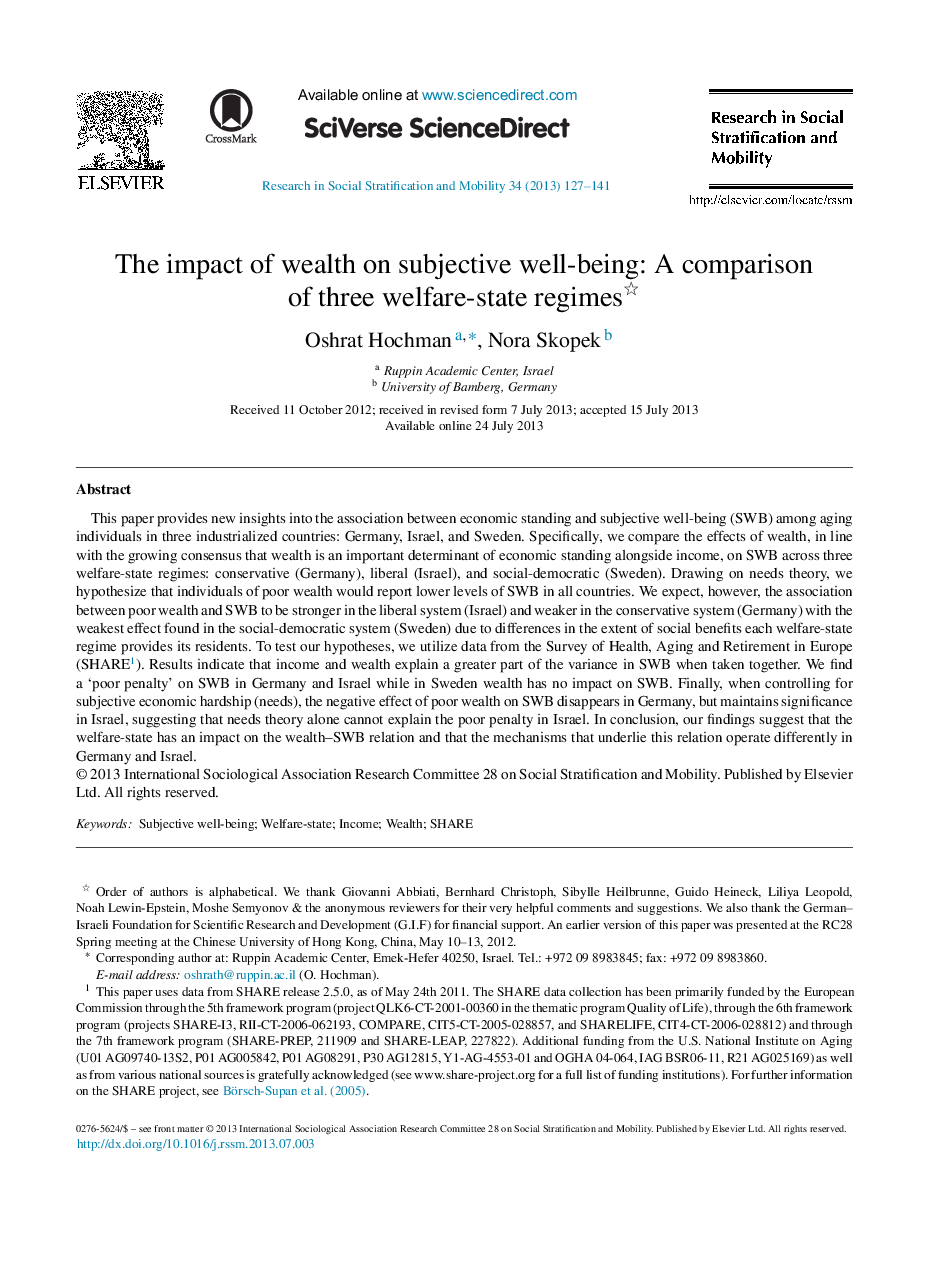| کد مقاله | کد نشریه | سال انتشار | مقاله انگلیسی | نسخه تمام متن |
|---|---|---|---|---|
| 999652 | 1481577 | 2013 | 15 صفحه PDF | دانلود رایگان |

• We investigate the association between wealth and SWB.
• We focus primarily on the role of needs, as a mechanism underlying this association.
• We examine the association in three countries representing three welfare-state regimes.
• Net of income, wealth has a positive effect on SWB in all three countries.
• However, the association between wealth and SWB differs in the three countries.
This paper provides new insights into the association between economic standing and subjective well-being (SWB) among aging individuals in three industrialized countries: Germany, Israel, and Sweden. Specifically, we compare the effects of wealth, in line with the growing consensus that wealth is an important determinant of economic standing alongside income, on SWB across three welfare-state regimes: conservative (Germany), liberal (Israel), and social-democratic (Sweden). Drawing on needs theory, we hypothesize that individuals of poor wealth would report lower levels of SWB in all countries. We expect, however, the association between poor wealth and SWB to be stronger in the liberal system (Israel) and weaker in the conservative system (Germany) with the weakest effect found in the social-democratic system (Sweden) due to differences in the extent of social benefits each welfare-state regime provides its residents. To test our hypotheses, we utilize data from the Survey of Health, Aging and Retirement in Europe (SHARE1). Results indicate that income and wealth explain a greater part of the variance in SWB when taken together. We find a ‘poor penalty’ on SWB in Germany and Israel while in Sweden wealth has no impact on SWB. Finally, when controlling for subjective economic hardship (needs), the negative effect of poor wealth on SWB disappears in Germany, but maintains significance in Israel, suggesting that needs theory alone cannot explain the poor penalty in Israel. In conclusion, our findings suggest that the welfare-state has an impact on the wealth–SWB relation and that the mechanisms that underlie this relation operate differently in Germany and Israel.
Journal: Research in Social Stratification and Mobility - Volume 34, December 2013, Pages 127–141